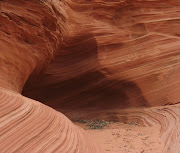 Svalbard to stave off annihilation from any future doomsday events. Their festive welcoming committee to Spitsberg included Nobel Peace Prize Winner Dr. Wangari Maathai, a children's choir rendition of an ode to seeds, European Commission President José Manuel Barroso of Portugal and many biodiversity specialists and other luminaries.
Svalbard to stave off annihilation from any future doomsday events. Their festive welcoming committee to Spitsberg included Nobel Peace Prize Winner Dr. Wangari Maathai, a children's choir rendition of an ode to seeds, European Commission President José Manuel Barroso of Portugal and many biodiversity specialists and other luminaries.The United Nations is an integral partner in the project with a large portion of its mission and resources dedicated to Food and feeding the world's hungry in famines, times of perpetual war, disasters causing displacement and drought. Almost 1300 seed banks from around the world are contributing valuable and rare seeds.
 An obscure Norwegian island, a mere 1000 kilometers or 600 miles away from the North Pole, amidst the remote Arctic Circle, boasts a cement nuclear proof fortress jutting out of a mountain of ice enshrines the innocuous sounding Global Seed Vault. Eventually, seeds numbering in the billions will reside imprisoned inside a fertile futuristic Noah's Ark, as scientists label and host every known seed on the planet for a project of preservation and conservation. As seeds arrive, they are placed into one of three man made cave vaults dug deep, yet meters high, for protection against flooding, while each of the areas is outfitted with specific climate controls to keep the seeds viable for a thousand years.
An obscure Norwegian island, a mere 1000 kilometers or 600 miles away from the North Pole, amidst the remote Arctic Circle, boasts a cement nuclear proof fortress jutting out of a mountain of ice enshrines the innocuous sounding Global Seed Vault. Eventually, seeds numbering in the billions will reside imprisoned inside a fertile futuristic Noah's Ark, as scientists label and host every known seed on the planet for a project of preservation and conservation. As seeds arrive, they are placed into one of three man made cave vaults dug deep, yet meters high, for protection against flooding, while each of the areas is outfitted with specific climate controls to keep the seeds viable for a thousand years."The opening of the seed vault marks a world's crop diversity," says Cary Fowler, executive director of the Rome-based Global Crop Diversity Trust, which led the project. "Crop diversity will soon prove to historic turning point in safeguarding the be our most potent and indispensable resource for addressing climate change, water and energyNorway is owner in chief of the Vault, but is reaching out to involve the world community of scientists, politicians, and climatesupply constraints, and for meeting the food needs of a growing population.
"Rice was the first staple to be stored in the vault—strains from 104 countries around the globe. Sealed in airtight foil packages and encased in boxes, the seeds will remain viable but dormant in the low temperature and humidity conditions.
Wheat, maize, potato, bean and even watermelon seeds will be placed in Svalbard in coming weeks. All told, 268,000 different varieties from Canada, Columbia, Mexico, Nigeria, Pakistan, the Philippines and Syria, among others, will be the first to enter the deep freeze.
The vault is designed to protect against global-scaledisasters—human or natural—that could potentially wipe out agriculture. Similar local seed banks have allowed farmers to recover from recent wars in Afghanistan and Iraq as well as provided new varieties capable of growing in changed conditions, such as rice strains that thrive in fields that had been inundated with saltwater after the Asian tsunami in 2004.
 change experts in each phase of the project. The rare recent earthquake in Norway did not disturb the Vault or its occupants. However, there are groups, like GRAIN, with deep reservations and concerns that the seed project is bureaucratized and overwhelmingly favors scholars, not the farmers that cultivate seeds in their natural habitats or pass them down as part of their cultural heritage and rituals. In case of a global food shortage or other soil catastrophes, the world's farmers may not be first in line to receive any distributions from the Vault project that may have other protocols they deem necessary to follow. (Photo courtesy IHT /Dan Cox)
change experts in each phase of the project. The rare recent earthquake in Norway did not disturb the Vault or its occupants. However, there are groups, like GRAIN, with deep reservations and concerns that the seed project is bureaucratized and overwhelmingly favors scholars, not the farmers that cultivate seeds in their natural habitats or pass them down as part of their cultural heritage and rituals. In case of a global food shortage or other soil catastrophes, the world's farmers may not be first in line to receive any distributions from the Vault project that may have other protocols they deem necessary to follow. (Photo courtesy IHT /Dan Cox) The Green Belt Movement gives detail in a state the facts style on the founding of Dr. Maathai's cause and her journey to get the world to pay attention before it was too late. She has many notable firsts; the first Kenyan woman from East or Central Africa to earn her doctorate and the first African woman to win a Nobel Peace Prize and receive the award in Oslo, Norway. Wangari Maathais' quest to plant trees and build an environmental consciousness in Africa and the world is in her treatise, Unbowed: A Memoir. A book for children written about her efforts to save the trees, Planting the Trees of Kenya: The Story of Wangari Maathai from Claire A Nivola is lauded by noted conservationist Bill McKibben.
The Green Belt Movement gives detail in a state the facts style on the founding of Dr. Maathai's cause and her journey to get the world to pay attention before it was too late. She has many notable firsts; the first Kenyan woman from East or Central Africa to earn her doctorate and the first African woman to win a Nobel Peace Prize and receive the award in Oslo, Norway. Wangari Maathais' quest to plant trees and build an environmental consciousness in Africa and the world is in her treatise, Unbowed: A Memoir. A book for children written about her efforts to save the trees, Planting the Trees of Kenya: The Story of Wangari Maathai from Claire A Nivola is lauded by noted conservationist Bill McKibben.












No comments:
Post a Comment